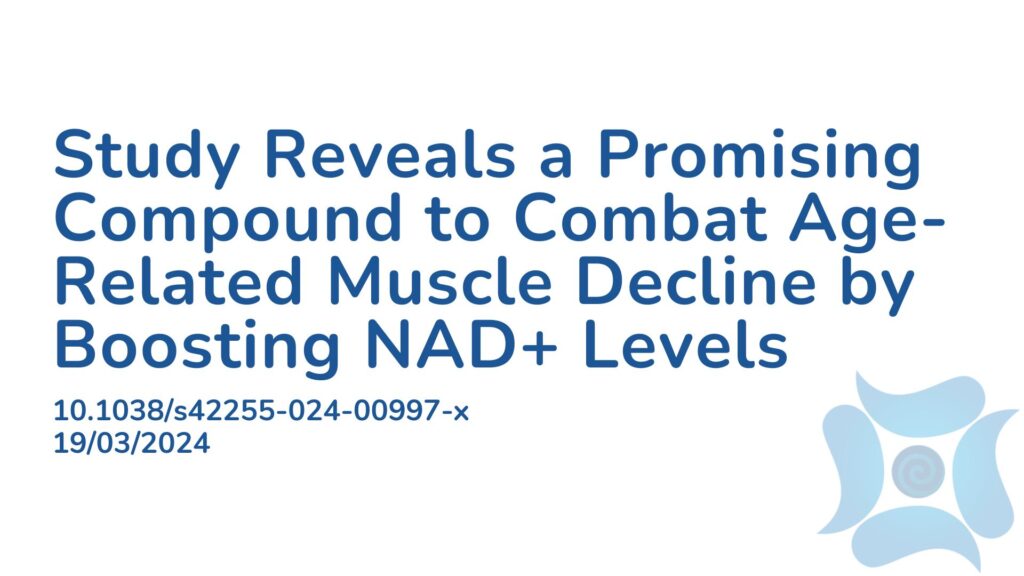Summary:
Mitochondrial dysfunction and low nicotinamide adenine dinucleotide (NAD+) levels are key features of muscle aging and sarcopenia, but it is unclear if these issues stem from local changes or are influenced by external factors such as diet. Low levels of trigonelline, a compound similar to nicotinic acid, are linked to sarcopenia, decreased muscle strength, and poor mitochondrial function. This study examined the connection between trigonelline levels, NAD+ levels, and muscle health in various species. The researchers demonstrated that trigonelline, both naturally occurring (from coffee or fenugreek seeds, which are naturally abundant in trigonelline) and as a manufactured supplement, increases NAD+ levels in worms, mice, and muscle cells from both healthy individuals and those with sarcopenia. Trigonelline improved mitochondrial function, reduced muscle wasting with age, and increased lifespan and mobility through an NAD+-dependent process. Supplementation also boosted muscle strength and prevented fatigue during aging. Thus, trigonelline supplementation could be a potential nutritional strategy to combat age-related muscle decline by increasing NAD+ levels.
Abstract:
Mitochondrial dysfunction and low nicotinamide adenine dinucleotide (NAD+) levels are hallmarks of skeletal muscle ageing and sarcopenia1,2,3, but it is unclear whether these defects result from local changes or can be mediated by systemic or dietary cues. Here we report a functional link between circulating levels of the natural alkaloid trigonelline, which is structurally related to nicotinic acid4, NAD+ levels and muscle health in multiple species. In humans, serum trigonelline levels are reduced with sarcopenia and correlate positively with muscle strength and mitochondrial oxidative phosphorylation in skeletal muscle. Using naturally occurring and isotopically labelled trigonelline, we demonstrate that trigonelline incorporates into the NAD+ pool and increases NAD+ levels in Caenorhabditis elegans, mice and primary myotubes from healthy individuals and individuals with sarcopenia. Mechanistically, trigonelline does not activate GPR109A but is metabolized via the nicotinate phosphoribosyltransferase/Preiss–Handler pathway5,6 across models. In C. elegans, trigonelline improves mitochondrial respiration and biogenesis, reduces age-related muscle wasting and increases lifespan and mobility through an NAD+-dependent mechanism requiring sirtuin. Dietary trigonelline supplementation in male mice enhances muscle strength and prevents fatigue during ageing. Collectively, we identify nutritional supplementation of trigonelline as an NAD+-boosting strategy with therapeutic potential for age-associated muscle decline.
Article Publication Date: 19/03/2024
DOI: 10.1038/s42255-024-00997-x




